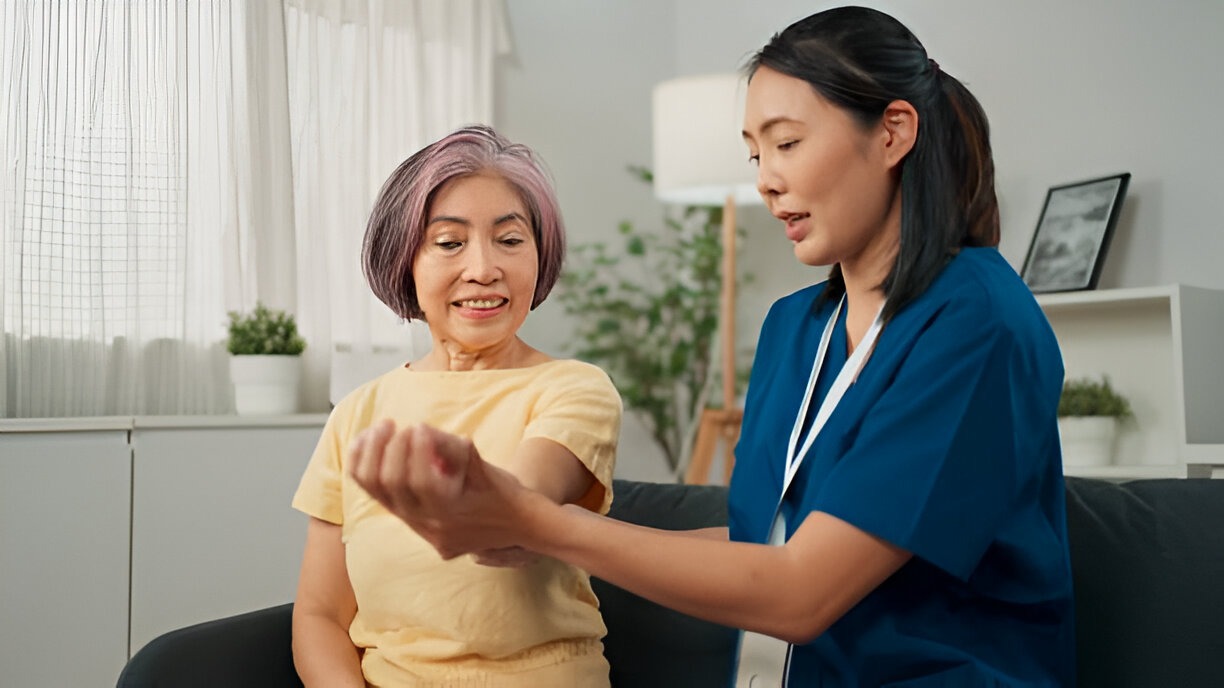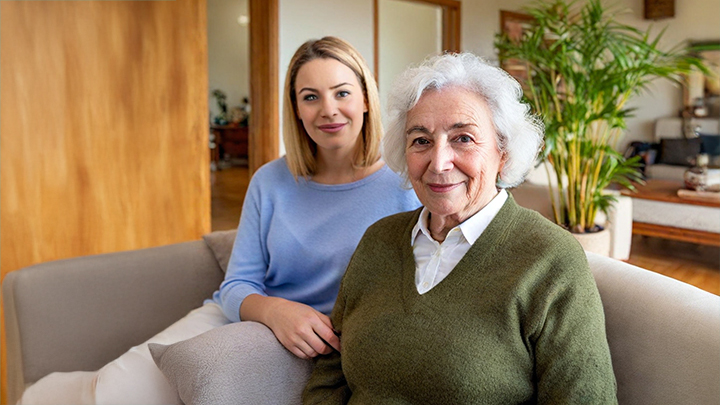Choosing the right care option for aging loved ones in Southern Pines can be a difficult decision for families. The two main choices are 24-hour home care and assisted living facilities.
Seniors in Southern Pines can benefit from specialized care services tailored to their unique needs. 24-hour home care provides personalized attention in the comfort of familiar surroundings, while assisted living facilities offer structured support within a community setting.
Your choice directly impacts your loved one's:
Daily comfort and routine
Social interactions
Physical well-being
Mental health
Quality of life
The right care option creates a foundation for dignity, independence, and happiness in the golden years. This decision requires careful consideration of individual needs, preferences, and circumstances.
This article will compare 24-hour home care and assisted living options in Southern Pines. You'll discover key differences, benefits, and potential drawbacks of each choice - empowering you to make an informed decision that best serves your loved one's needs.
Understanding 24-Hour Home Care
24-hour home care provides comprehensive support for seniors who prefer to age in place within their familiar Southern Pines surroundings. This personalized care option delivers round-the-clock assistance through dedicated caregivers who work in shifts to ensure continuous support.
Key Components of 24-Hour Care:
Personalized Daily Routines: Caregivers adapt to your loved one's preferred schedule, from early morning routines to nighttime rituals
Medication Management: Timely reminders and assistance with prescribed medications
Meal Preparation: Nutritious meals prepared according to dietary requirements and preferences
Personal Care: Assistance with bathing, grooming, and dressing
Mobility Support: Help with safe movement around the home
Health Monitoring: Regular observation of vital signs and health changes
The structure of 24-hour care allows seniors to maintain their independence while receiving necessary support. Caregivers become familiar with individual preferences, creating a comfortable environment that promotes dignity and autonomy.
Specialized Support for Complex Needs:
Home care services extend beyond basic assistance to include specialized care for conditions such as:
Alzheimer's and dementia care
Post-surgery recovery
Chronic illness management
Mobility limitations
Cognitive impairments
Professional caregivers provide cognitive stimulation through engaging activities, conversations, and memory exercises. This personalized approach helps maintain mental acuity and emotional well-being.
Flexible Care Arrangements:
The flexibility of 24-hour home care allows for:
Adjustable care schedules
Customized care plans
Coordination with medical professionals
Integration of family involvement
Modification of services as needs change
Caregivers work closely with families to create a supportive environment that respects the senior's preferences while ensuring safety and comfort. This collaborative approach helps maintain family connections and preserves established routines.
Safety and Security:
Round-the-clock care provides peace of mind through:
Immediate response to emergencies
Fall prevention measures
Regular safety assessments
Medication error prevention
Continuous monitoring
Southern Pines seniors benefit from consistent companionship, reducing feelings of isolation while maintaining their cherished home environment. This personalized care option creates a balance between independence and necessary support, ensuring seniors receive the attention they need while preserving their dignity and lifestyle preferences.

Potential Drawbacks of 24-Hour Home Care
While 24-hour home care offers personalized assistance, certain challenges can impact the care experience:
1. Social Isolation Concerns
Limited exposure to peer interactions compared to communal settings
Reduced opportunities for group activities and social events
Potential feelings of loneliness despite caregiver presence
Fewer chances for spontaneous social connections
2. Caregiver Dependency Issues
Reliance on specific caregivers can create emotional attachment
Schedule disruptions when primary caregivers are unavailable
Possible stress when adapting to new care providers
Risk of care gaps during caregiver transitions
3. Family Impact
Physical and emotional strain on family members involved in care
Burnout risk for family caregivers managing coordination
Added responsibility of supervising professional caregivers
Home environment modifications may burden family resources
4. Logistical Challenges
Need for backup care plans during emergencies
Coordination of multiple caregivers for 24/7 coverage
Home maintenance responsibilities continue
Limited access to specialized equipment compared to facilities
The home setting's familiar comfort can sometimes create unexpected isolation. Seniors might miss the built-in social networks and structured activities found in assisted living communities. Family members often face the dual challenge of managing professional caregivers while maintaining their own well-being.
Exploring Assisted Living Facilities in Southern Pines
Southern Pines offers several assisted living options designed to provide seniors with a structured, supportive environment that combines independence with professional care. These facilities create vibrant communities where residents can thrive while receiving necessary assistance.
Key Features of Southern Pines Assisted Living Communities:
24/7 professional medical supervision
Organized social activities and wellness programs
Restaurant-style dining facilities
Transportation services
Emergency response systems
Housekeeping and maintenance services
Medication management
Personal care assistance
The structured environment in assisted living facilities provides a balance between independence and support. Residents maintain their privacy in individual apartments or rooms while having immediate access to help when needed.
Community Living Benefits
Living in a communal setting creates opportunities for meaningful social connections. Residents can:
Participate in group activities and events
Share meals with others in common dining areas
Join hobby groups and special interest clubs
Attend educational programs and workshops
Engage in fitness classes designed for seniors
These social interactions help combat isolation and promote mental well-being. The daily structure and organized activities provide a sense of purpose and routine that many seniors find comforting.
Professional Care Support
Trained staff members in Southern Pines assisted living facilities offer comprehensive care services:
Regular health monitoring
Assistance with daily living activities
Specialized memory care programs
Coordination with healthcare providers
Emergency response protocols
Dietary management
Physical therapy services
The presence of professional caregivers allows residents to focus on enjoying their retirement while knowing support is always available. Staff members are trained to recognize changes in residents' health conditions and respond appropriately to medical emergencies.
Safety and Security Features
Modern assisted living facilities in Southern Pines incorporate various safety measures:
Secured entrances and exits
Emergency call systems in all living spaces
Wide hallways with handrails
Well-lit common areas
Slip-resistant flooring
Regular safety checks
Fire safety systems
Security personnel
These features create a protected environment where seniors can move freely while maintaining their dignity and independence.
Potential Drawbacks of Assisted Living Facilities
The financial commitment of assisted living facilities presents a significant consideration for Southern Pines seniors and their families. With an average monthly cost of $4,770, these expenses can strain retirement savings and family resources. This cost typically includes:
Basic room and board
Utilities and maintenance
Three daily meals
Basic care services
Additional fees often apply for:
Specialized medical care
Personal care assistance
Transportation services
Extra amenities or activities
Living in a communal setting brings specific challenges to personal autonomy. Residents must adapt to:
Fixed meal schedules
Predetermined activity times
Visitor restrictions
Shared common spaces
Community rules and regulations
The structured environment can feel restrictive for seniors accustomed to independent living. Many facilities implement standardized care protocols that might not align with individual preferences or daily routines. Residents may experience:
Limited choice in meal options
Restricted decorating possibilities
Reduced privacy in common areas
Set times for medical care
Regulated social activities
These institutional aspects can impact a senior's sense of independence and personal control. The transition from managing one's own schedule to following facility protocols requires significant adjustment, particularly for those who value their daily routines and decision-making freedom.

Key Factors to Consider When Choosing Between 24-Hour Home Care and Assisted Living Facilities
Your loved one's unique situation requires careful evaluation of three critical factors:
1. Independence Level Assessment
Assessing your loved one's level of independence is crucial in determining the most suitable care option. Consider the following aspects:
Daily routine management capabilities
Ability to perform basic self-care tasks
Current living environment navigation skills
Social engagement preferences
Desire for personal space and privacy
2. Health Requirements
Understanding your loved one's health needs is essential in making an informed decision. Take into account the following factors:
Current medical conditions and necessary treatments
Medication management needs
Physical mobility limitations
Cognitive health status
Emergency response requirements
3. Financial Planning Considerations
Financial considerations play a significant role in choosing between 24-hour home care and assisted living facilities. Evaluate the following aspects:
Monthly budget allocation
Insurance coverage availability
Long-term care insurance benefits
Medicare/Medicaid eligibility
Family financial resources
A thorough assessment of these factors helps create a clear picture of your loved one's needs. For instance, seniors with high independence levels but requiring occasional assistance might benefit from 24-hour home care in Southern Pines. This option allows them to maintain their routines while receiving personalized support.
Health needs often dictate the choice between care options. Complex medical conditions might require the structured environment of an assisted living facility, where trained staff can provide immediate medical attention.
The financial aspect involves comparing the costs of home modifications and caregiver services against assisted living facility fees. Insurance coverage varies significantly between these options. Some long-term care insurance policies offer better coverage for assisted living facilities, while others provide more substantial benefits for in-home care services.
Your choice should reflect a balance between these factors, prioritizing your loved one's specific needs and circumstances. The team at Comfort Keepers can help evaluate these factors and guide you through the decision-making process.
Making an Informed Decision: Prioritizing Southern Pines Seniors' Well-Being Above All Else!
Your choice between 24-hour home care and assisted living shapes your loved one's daily life. Take time to assess:
Personal Preferences: Listen to your senior's desires about where they feel most comfortable
Health Requirements: Consider both current and anticipated medical needs
Social Connections: Evaluate opportunities for meaningful interactions
Financial Resources: Review available funds, insurance coverage, and long-term sustainability
At Comfort Keepers of Southern Pines, we've witnessed how personalized care decisions positively impact seniors' lives. Our experienced team at (910) 246-8000 stands ready to help you explore your options.
Remember these essential priorities:
Dignity preservation
Privacy protection
Safety assurance
Quality of life enhancement
Each senior's journey is unique - there's no universal solution. Your careful consideration of these factors, combined with professional guidance, will lead to the right choice for your loved one's specific situation.
Your senior's well-being deserves thoughtful planning and dedicated support. Let's work together to create their ideal care environment.
FAQs
What is the main difference between 24-hour home care and assisted living?
The primary difference lies in the setting and type of care provided. 24-hour home care offers personalized assistance in the comfort of one's own home, allowing for greater independence. In contrast, assisted living facilities provide structured communal living with comprehensive support services available around the clock.
What are the advantages of choosing 24-hour home care for seniors?
Advantages of 24-hour home care include tailored services that meet individual needs, the ability to maintain independence, and companionship from caregivers. This option also provides cognitive support for seniors with impairments or dementia in a familiar environment.
What potential drawbacks should families consider when opting for assisted living?
Potential drawbacks of assisted living facilities include higher costs, which average around $4,770 per month, and concerns about loss of personal autonomy due to communal living rules. Additionally, some seniors may experience challenges related to adapting to a structured environment.
How can families assess whether 24-hour home care or assisted living is the better option?
Families should evaluate key factors such as the senior's level of independence, specific health needs that may require more structured support, and financial considerations including long-term costs and insurance coverage options.
What kind of activities are typically included in home care services?
Home care services generally include assistance with daily activities such as bathing, dressing, meal preparation, medication management, and providing companionship. This allows seniors to receive necessary help while remaining in their own homes.
Why is it important to prioritize well-being when choosing a care option for seniors?
Prioritizing well-being ensures that the chosen care option aligns with the senior's preferences, dignity, privacy, safety, and overall quality of life. Making an informed decision based on individual circumstances can significantly enhance their day-to-day experience.









